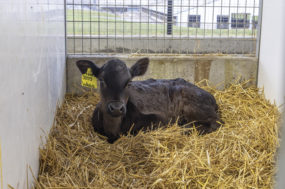In 1939, Patrick Kavanagh left his farm in County Monaghan, Ireland, and moved to Dublin to become a writer. When he was young, he would recite poetry while working in the fields or scribble down ideas for his own poems while attending to other farming chores.
By 1936, he had already published his first collection, Ploughman and Other Poems, but he believed in the city, without the limitations of the farm, he could finally become a respected writer.
Life in Dublin was not as he expected, however. Many of the established writers did not accept him into their circle, considering him to be a “blow-in peasant poet.” With a limited education, it was difficult for him to make a living in journalism and newspaper writing, particularly during wartime.
He found himself often distracted, drinking too much and spending too much effort fighting for his right as a poet. He started to think of the farm again, this time with longing and nostalgia. After spending the holiday season alone in his Dublin apartment, he wrote the poem “A Christmas Childhood,” imagining a Christmas when he was 6 years old. In the piece, Kavanagh returns to both the farm and his innocence with the details of a farming life presented as small miracles:
The tracks of cattle to a drinking-place,
A green stone lying sideways in a ditch,
Or any common sight, the transfigured face
Of a beauty that the world did not touch.
Perhaps it is no coincidence a return to the farm in the poet’s mind took place on Christmas, as Christmas is, if anything, a time for returning. Those who celebrate Christmas do it by gathering with family, which often means going back home – either in actuality or, as Kavanagh did, by sharing memories of where we came from.
It’s a time to stop working and return to the basics of good living, which in the end is probably family, friends and too much food. It’s a time to set aside differences and start again at the common ground once shared.
Disenfranchised by the “glamour” of Dublin, Patrick Kavanagh eventually became the champion of the commonplace and everyday in his work. Although most of the rest of his life was lived in Dublin (an existence that, for him, was toxic and eventually killed him), he returned again and again to the fields of Monaghan in his writing.
His most famous works, the semi-autobiographical novel Tarry Flynn and the long poem “The Great Hunger,” present agriculture honestly, accurately and without romance. In finding meaning in the small details of farming, he gave voice to a lifestyle and group of people previously considered less worthy of writing about than those found in the city.
I have no doubt if Kavanagh was alive today to write another Christmas poem, it would be the milking parlors and calf hutches he would be thinking about and not Christmas markets in Nuremberg or the tree in Rockefeller Center.
More than 50 years since his death, the people of Ireland continue to return to Patrick Kavanagh during the holiday season. “A Christmas Childhood,” along with his poem “Advent,” are still the most often-read pieces in schools, churches, homes and newspapers.
In going back through his mind to revisit a rural life he had once scorned, he gives breath to the small particulars of our lives that eventually stay with us and define who we are. In particular, he takes the act of farming and turns it into something at the heart of the phenomenon of Christmas, with lines like:
My father played the melodion
Outside at our gate;
There were stars in the morning east
And they danced to his music.
Across the wild bogs his melodion called
To Lennons and Callans.
As I pulled on my trousers in a hurry
I knew some strange thing had happened.
Outside in the cow-house my mother
Made the music of milking;
The light of her stable-lamp was a star
And the frost of Bethlehem made it twinkle.
Welcome back this Christmas. ![]()
Ryan Dennis is the son of a former dairy farmer from western New York and a literary writer.




